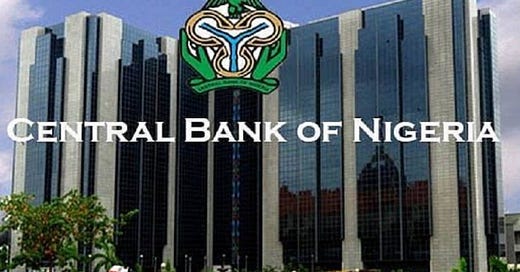High inflation to higher interest rates
The increases in inflation rate over the past months have been a cause for concern. Prices of food and other living essentials have continuously risen. In a move against skyrocketing inflation rates, the Central Bank of Nigeria (CBN) decided to increase the Monetary Policy Rate (MPR) to 15.5% from 14%. This year alone, the CBN has increased the MPR by a cumulative of 4%. By the book this should reduce the money in circulation and help reduce upward price pressures.
Inflation in simple terms is caused by too much money chasing too little goods. This means that inflation is caused by either insufficient supply of goods (cost-push) or too much money supplied (demand-pull). One of the biggest causes of too much money is when it is cheap to borrow money, the more people borrow the more money is supplied.
The CBN is the bank of banks. That is, they are the ones that lend money to commercial banks. This means that the interest rate charged by CBN to banks will determine how much the banks will charge people that borrow from them. This rate also affects how much the government will pay to borrow from the public, talking about rates on treasury bills and government bonds. The higher the rate, the more people will be willing to lend to the government.
So, when the CBN increases the MPR (the interest rate it charges banks) we expect that less people will borrow, more people will invest and the money supply will go down, inflation solved (‘yayyy’). Curbing inflation this way will be a perfect solution under the assumption that the supply of money plays a greater role in high inflation than supply of goods and that the principal way people get loan is from banks.
These assumptions are questionable because sometimes, the main cause of inflation is not too much money but too little goods or in the case where the goods are imported, an increase in foreign exchange rate would lead to an increase in the domestic prices of those goods (this is called imported inflation).
So what?
The principal reason inflation in Nigeria is high is linked to the exchange rate in two ways. Firstly, we are an import dependent economy, so changes in exchange rate greatly affects the price of goods. Secondly, the goods that are manufactured in the country have a lot of imported raw materials (think wheat is imported for bread, sugar is imported for drinks, fertilizers for farm goods). This means the nature of inflation is ‘cost push’ and an increase in interest rate will not bring down the prices of those items.
Another challenge is that a sizable portion of the Nigerian economy is informal, that is they are not connected to the banks and other financial services and so can’t access bank loans (think market women and unregistered artisans). This means that they are not affected by bank lending rates.
The most effective way to address the high inflation is to improve the exchange rate. Although there is the idea that a higher domestic interest rate in comparison to other countries will be an attraction for foreign investors and that would improve the exchange rate, which may not be a concrete way out due to other factors such as political instability and corruption that discourage foreign investors. Another way we can consider to achieve better exchange rates and in the long run lower inflation is increasing the domestic production capacity of the nation and exporting more. Polices targeted at doing this are called supply side policies.




